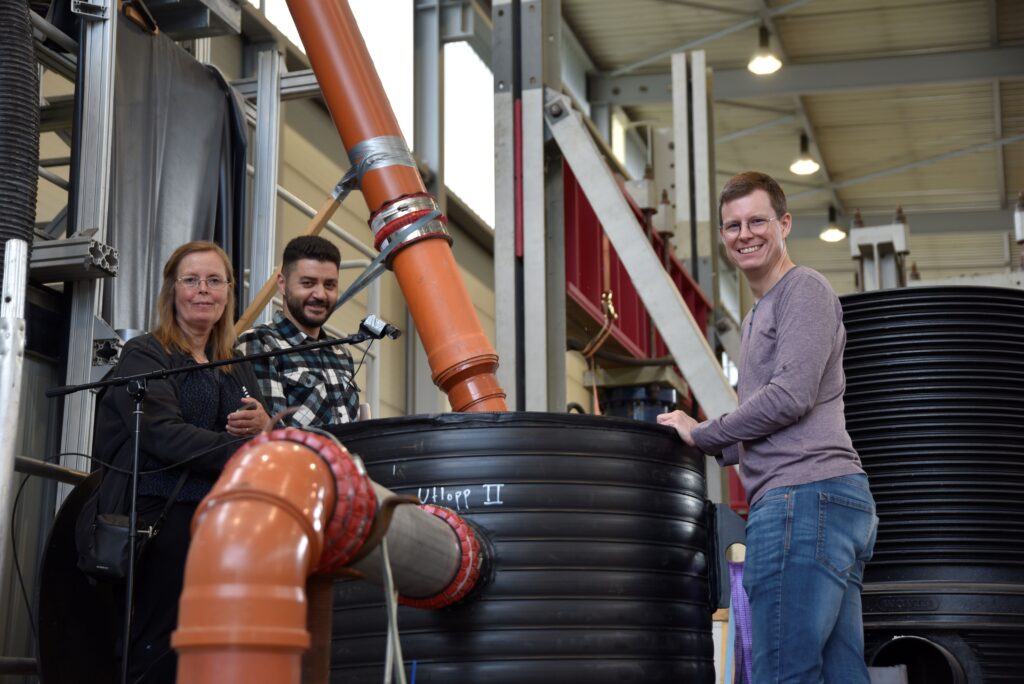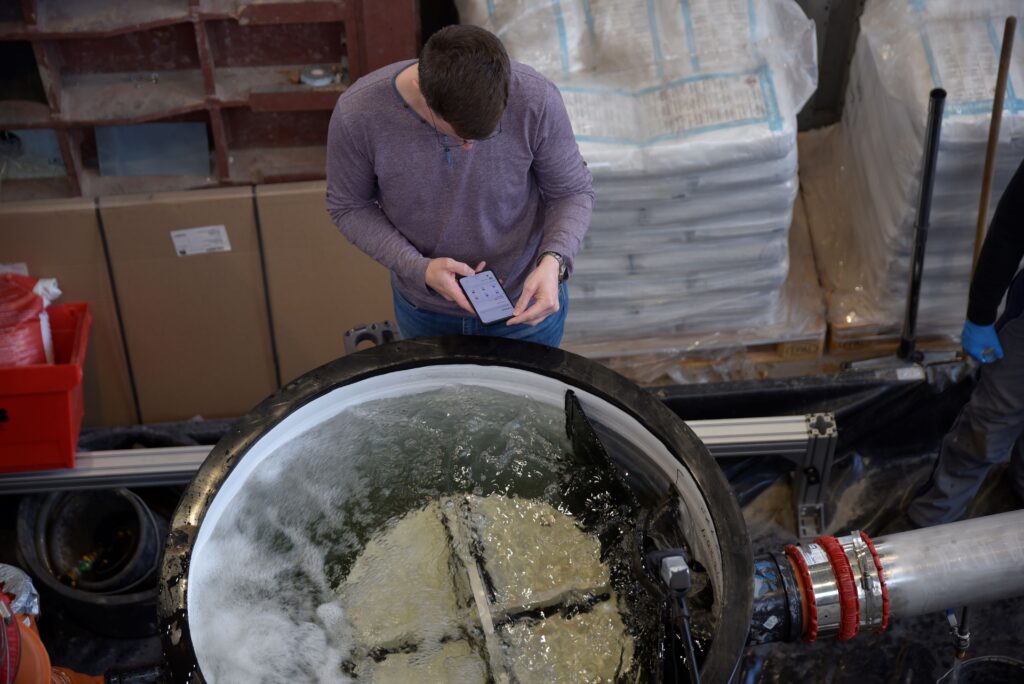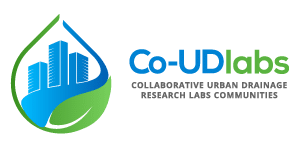Launch of the Transnational Access Project “Standard for stormwater management in Sweden”
IKT, RISE and Luleå University of Technology launch cooperation within Co-UDlabs
Water pollution caused by stormwater discharges from separated sewer systems is currently subject of intense debate, particularly concerning pollutants that are washed off from paved surfaces via stormwater. Decentralized stormwater treatment facilities can mitigate this challenge, as they are designed to retain and treat pollutants from polluted stormwater runoff close to the source. In this way, the rainwater can also be discharged into the separate sewer system after retention and treatment or even infiltrated on site. In this way, for example, hydraulic overloading of the existing stormwater sewers can be avoided.
Throughout Europe, legislators and authorities are increasingly demanding appropriate stormwater treatment before its discharge into receiving watercourses and/or groundwater. Especially runoff from traffic areas is of concern because a large number of particles and thus particle-bound pollutants accumulate here including tire and road wear particles (TRWP), brake dust, oil and fuel leakages as well as combustion and corrosion residues from vehicles. Ultra-fine particles, which are particularly common on roads, are a particularly important carrier of these pollutants since a considerable proportion of heavy metals and other pollutants are adsorbed to these particles. However, also organic material carried in stormwater from paved surfaces can cause problems for water bodies, as they are highly oxygen-consuming.
For this reason, the TOC load (Total Organic Carbon) is used as a relevant sum parameter for stormwater discharge from traffic areas into water bodies or groundwater, as well as heavy metals, which can be present in particulate and dissolved form, and the load of fine particles, so-called TSS. Decentralized stormwater treatment facilities should retain these loads even under different boundary conditions, especially with discontinuous and varying stormwater flows and volumes.
It is generally advisable to evaluate the performance of these systems before they are installed. In Sweden, there is currently no established standard for testing the treatment capacity and hydraulic performance and therefore also for the design of such systems.
The transnational research project “Standard development for stormwater management in Sweden” has now been launched to address this issue. In the project the Swedish research organization RISE – Research Institutes of Sweden, the Luleå University of Technology and the company UPONOR, part of GF, have access to IKT’s research infrastructure IKT TEST, a test and research stand for decentralized stormwater treatment systems.
Corresponding tests have now been carried out at IKT and accompanied by the Swedish project team. In addition, there was an intense technical exchange between IKT and the Swedish project team. The results of the tests are being used to develop a test procedure for decentralized stormwater treatment systems, which is to be seen as a proposal for the Swedish test standard for the relevant standardization bodies.


